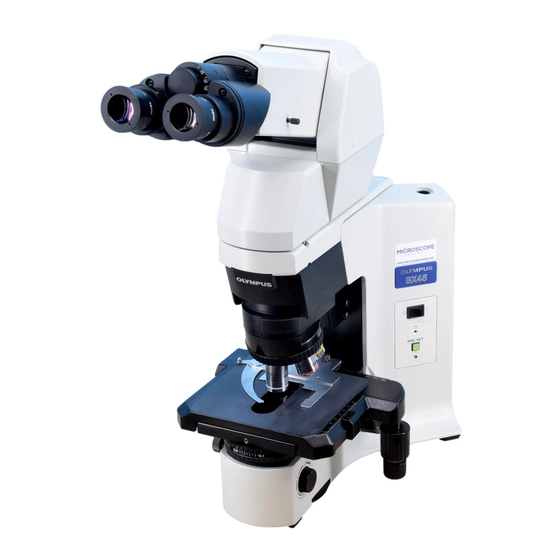
|
@
12
²
³
@
Fig. 15
Fig. 16
2
Adjusting the X- and Y-Axis Knob Tension
1. Hold the X-axis knob @ and slide up the Y-axis knob ² up to expose the
adjustment knobs.
2. Turning the X-axis adjustment knob ³ or Y-axis adjustment knob | clock-
wise (in the direction of the arrow) increases the tension and counter-
clockwise decreases it.
# If the tension is adjusted to tight, a creaking sound may be heard
during stage travel, and the stage stopping accuracy may be imper-
iled.
After long hours of use, the stage guide may be devi-
CAUTION
ated and the stage travel range may be decreased.
However, this is not malfunction and can be corrected
easily as described below.
[Treatment]
Horizontal direction: Hold the specimen holder and move the stage guide
to the left and right so that it hits the stoppers.
Vertical direction:
Hold the upper stage and move it to the front and rear
so that it hits the stoppers.
Rubber Caps for X- and Y-Axis Knobs (Optional)
}When the X- and Y-axis knobs are fitted with the rubber caps, the knobs
can be adjusted without slipping and fine adjustment is possible by
holding the knobs with a very light force. The rubber caps also reduce
fatigue after long hours of operation.
The U-SHGT thick type (thickness 5 mm) and U-SHG thin type (thickness
2 mm) rubber caps are available.
To attach the rubber caps:
First fit the larger knob rubber to the Y-axis (upper) knob from below it,
then fit the smaller knob rubber to the X-axis (lower) knob from below it.
3
Rotating the Stage
1. Using the Allen screwdriver, slightly loosen the stage clamping screw @.
2. The stage can be rotated both clockwise and counterclockwise.
# A click may be heard and felt during rotation. However, this is due to
the construction of the substage and does not indicate a malfunc-
tion.
}The angle of rotation varies depending on the X- and Y-axis knobs.
Right hand knobs
Left hand knobs
Angle of Rotation
Clockwise
Counterclockwise
230°
20°
20°
230°
(Fig. 15)
(Fig. 16)
